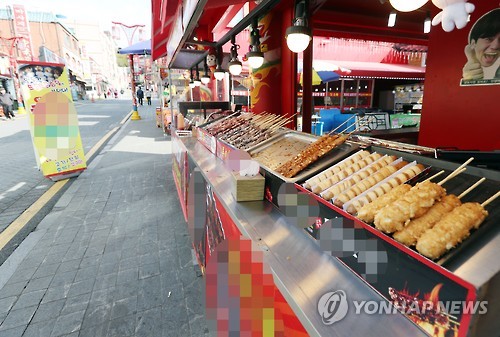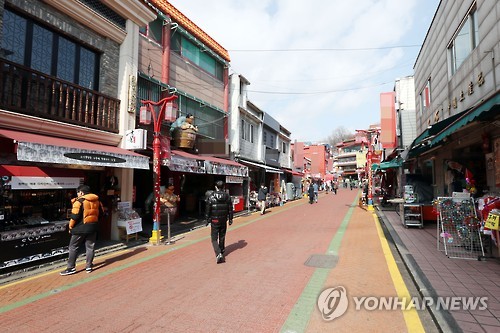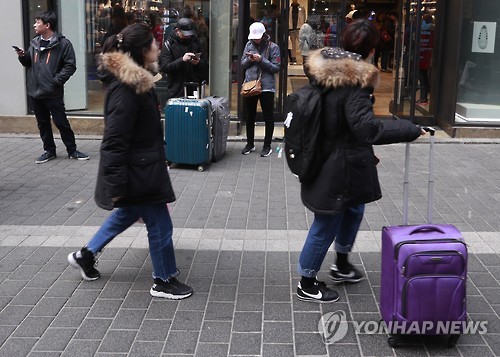China's economic retaliation against South Korea over a missile defense system has battered the real estate market in this western port of Incheon, a main gateway for Chinese visitors to South Korea, industry sources said Friday.
Last week, China ordered travel agencies to stop selling group tours to South Korea after Seoul finalized a deal with Lotte Group to station a Terminal High Altitude Area Defense (THAAD) battery on a Lotte golf course in the southeastern county of Seongju.
Analysts fear more retaliatory measures may be in store for South Korea. China has expressed strong opposition to the decision, saying it will be used to spy on its military.
According to the sources, China's effective travel ban has dealt a harsh blow to hotels here that cater mainly to Chinese tour groups. Such hotels usually sell each room to investors, who receive a monthly return amounting to around 8 percent of their initial investment.

One such hotel is in operation, with another slated to start operations in April. Four more hotels, one of which is scheduled for completion in June, are selling rooms to potential investors.
Investor demand used to be high because of Incheon's proximity to Incheon International Airport and a government decision to establish a foreigners-only casino nearby, but Beijing's sanctions have thrown a wet blanket on the industry.
The operating hotel initially promised to provide investors with a guaranteed return of 8 percent each month, but lowered the figure to 4 percent amid dwindling Chinese tourists.
"Our hotel used to be flooded with Chinese tourists thanks to its closeness to Incheon International Airport and its low room charges," a hotel official said. "But we expect severe damage from China's travel regulations."
Hotels in Incheon expect Chinese tourists' reservations to plunge after next Wednesday, when China's ban on group tours to South Korea go into effect.

According to the Incheon Tourism Organization, Chinese cosmetics firm Aolan International Beauty Group and two other Chinese companies have scrapped or delayed plans to hold corporate meetings in the port city.
Some 4,000 employees of a Chinese company -- who had initially scheduled to come to South Korea on a reward trip in June -- recently canceled the visit. Last year, 4,500 workers from Aolan toured South Korea as part of a bonus corporate trip and gathered in Incheon, a port city west of Seoul.
China's effective travel ban is also sure to throw a monkey wrench at Incheon City's plans to attract Chinese capital as part of efforts to give a fillip to the local real estate market.
In November 2011, the government adopted a real estate investment immigration system for a free economic zone in Incheon. Eight apartments in the port city were sold to Chinese investors in 2015.
Under the system, foreigners who invest 500 million won (US$432,000) or more in local real estate business are eligible to receive an F-2 resident visa, which can later be upgraded to an F-5 visa for permanent residence if they live in the country for more than five years.

"By capitalizing on the real estate investment immigration system, the city has pushed ahead with developing an area near Incheon International Airport, but China's travel restrictions will inevitably hamper the plan for the time being," a city official said.

